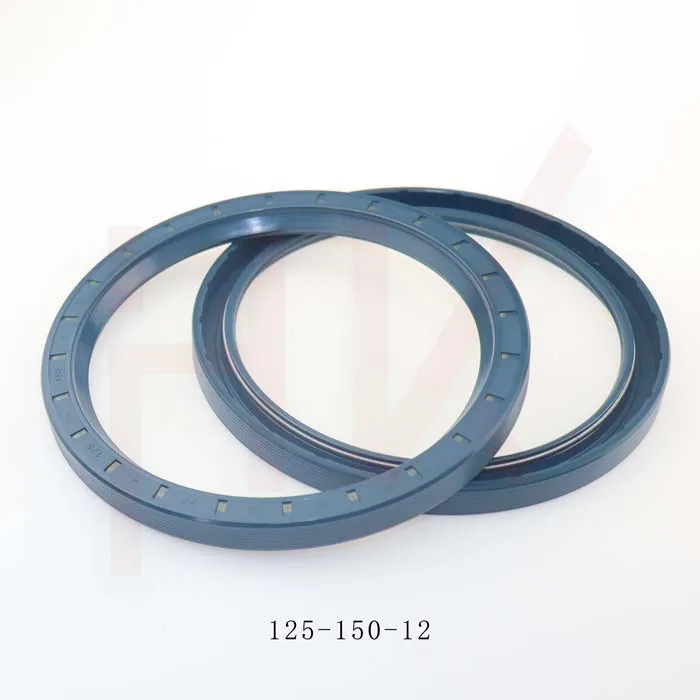نومبر . 01, 2024 00:32 Back to list
Understanding Hydraulic Lip Seals for Enhanced Sealing Performance in Fluid Systems
Understanding Hydraulic Lip Seals A Key Component in Fluid Power Systems
Hydraulic lip seals play a crucial role in various hydraulic systems, ensuring optimal performance and longevity of equipment. They are essential components used primarily to prevent fluid leaks and protect against contaminants in hydraulic applications. Understanding their design, function, and benefits can be invaluable for engineers and technicians working in fields related to fluid power.
What are Hydraulic Lip Seals?
Hydraulic lip seals, also known simply as lip seals, are typically manufactured from elastomeric materials such as nitrile rubber, polyurethane, or fluorocarbon. Their design features a flexible lip that serves as the sealing surface, which maintains contact with the shaft or cylinder wall. This contact is crucial for effectively preventing the escape of hydraulic fluid while keeping dirt, dust, and other contaminants from entering the system.
Key Features and Design
One of the distinguishing features of hydraulic lip seals is their versatility in design. They can be customized to fit different applications, pressures, and temperatures. The lip of the seal can be oriented in various ways depending on the direction of fluid flow and operational conditions. The geometry and surface finish of both the seal and the mating surfaces are essential for minimizing wear and ensuring a tight seal.
Hydraulic lip seals are also designed to accommodate slight misalignments and dynamic movements, which are common in hydraulic systems. The flexibility of the lip allows for self-adjustment to some extent, providing an effective seal even under changing operational conditions.
Benefits of Using Hydraulic Lip Seals
hydraulic lip seal

1. Leak Prevention One of the primary functions of hydraulic lip seals is to prevent fluid leakage. This is critical not only for maintaining system efficiency but also for environmental protection, as leaks can lead to significant pollution and waste.
2. Contaminant Protection By keeping contaminants out, hydraulic lip seals extend the life of hydraulic systems and their components. Contaminated fluids can cause wear, corrosion, and even catastrophic failure of the system.
3. Efficiency By ensuring a tight seal, these seals help maintain pressure within hydraulic systems, contributing to their overall efficiency. This efficiency can translate to energy savings and reduced operational costs.
4. Versatility Hydraulic lip seals can be used in a wide variety of applications, including automotive hydraulics, industrial machinery, and aerospace systems. Their adaptability makes them a preferred choice for many engineers.
5. Cost-Effectiveness Given their ability to minimize leaks and protect systems from contamination, investing in high-quality hydraulic lip seals can lead to lower maintenance costs and extended equipment life.
Conclusion
In conclusion, hydraulic lip seals are a vital component in the realm of hydraulic systems. Their ability to prevent fluid leaks and block contaminants not only enhances the performance and reliability of equipment but also safeguards the environment from potential damage. As technology continues to evolve, advancements in seal materials and designs will likely improve their effectiveness even further, solidifying their importance in fluid power applications. Whether in industrial machinery, automotive systems, or aerospace technology, understanding and implementing hydraulic lip seals is essential for anyone involved in hydraulic engineering and maintenance.
-
TCN Oil Seal Metal Ring Reinforcement for Heavy Machinery
NewsJul.25,2025
-
Rotary Lip Seal Spring-Loaded Design for High-Speed Applications
NewsJul.25,2025
-
Hydraulic Cylinder Seals Polyurethane Material for High-Impact Jobs
NewsJul.25,2025
-
High Pressure Oil Seal Polyurethane Coating Wear Resistance
NewsJul.25,2025
-
Dust Proof Seal Double Lip Design for Construction Equipment
NewsJul.25,2025
-
Hub Seal Polyurethane Wear Resistance in Agricultural Vehicles
NewsJul.25,2025
-
The Trans-formative Journey of Wheel Hub Oil Seals
NewsJun.06,2025
Products categories
















